In the spectrum of American cities, Denver is lauded for its health-focused population, proximity to the outdoors and a rapidly growing community of entrepreneurs, creative agencies, and tech start-ups. Yet alongside these glowing attributes, the Mile High City also happens to be home to the nation’s most polluted zip code: 80216.
In the late 1800s, the area known as Elyria-Swansea was largely home to Eastern European immigrants working in various industries. From lead to arsenic and heavy metals, the factories that dominated the neighborhood leached countless toxins into the air, water and soil. Then, in the 1960s, the community was literally sliced apart from the rest of downtown Denver with the construction of the nearby I-70 highway.
Today, a predominantly Latino community of about 6,500 residents has inherited those burdens, inhaling constant fumes from six lanes of traffic and absorbing more than one hundred years of poisonous industries. The impact is measurable, with a population that cites forty percent more cases of asthma and a life expectancy twelve years shorter than the affluent Washington Park neighborhood (just thirty minutes away). Access to basic resources like fresh groceries or healthcare is challenging for residents who don’t own cars—and who already endure lengthy commutes to work. Yet over the past ten years, a rose has slowly bloomed among these proverbial thorns: The GrowHaus.
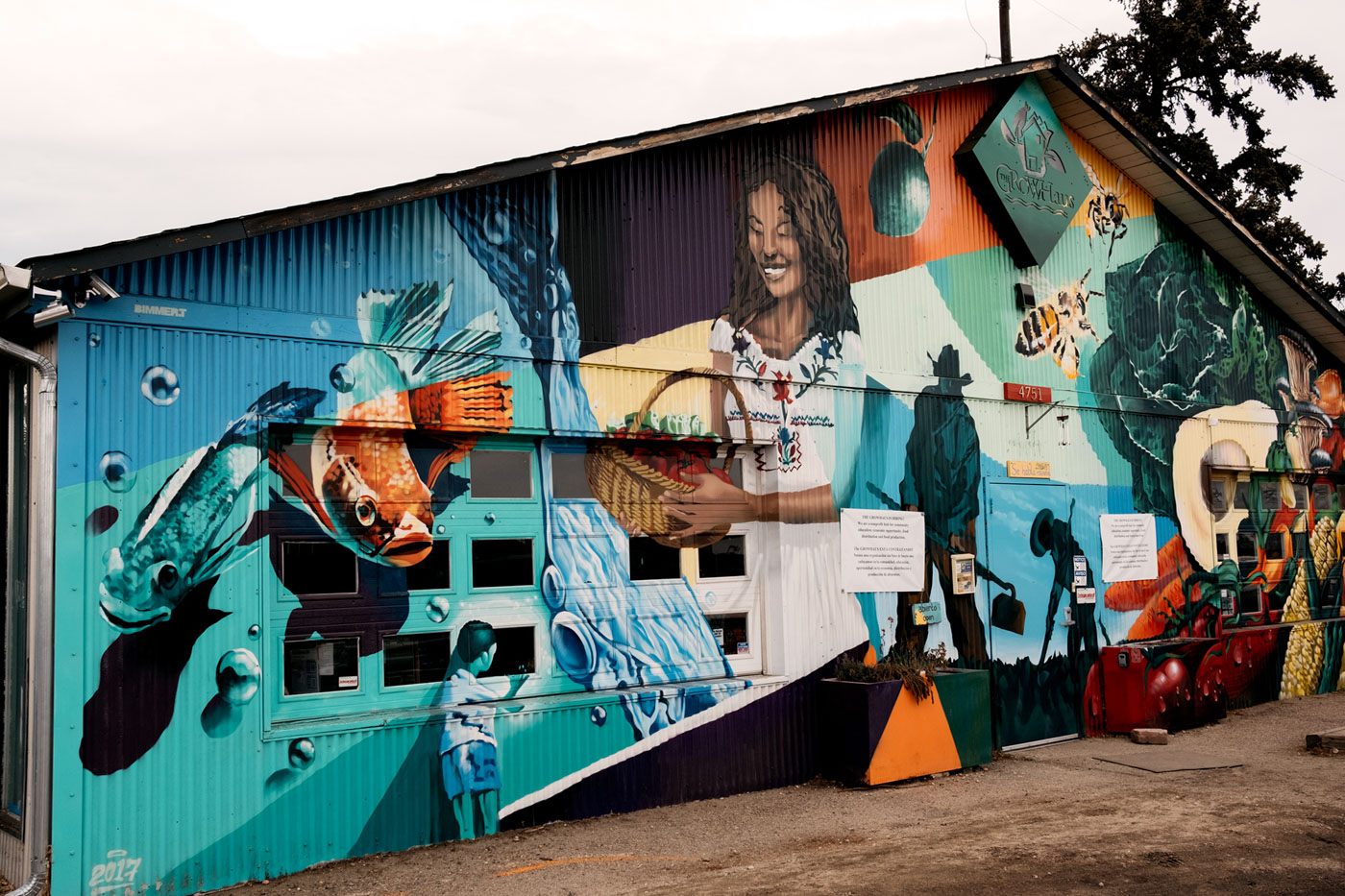
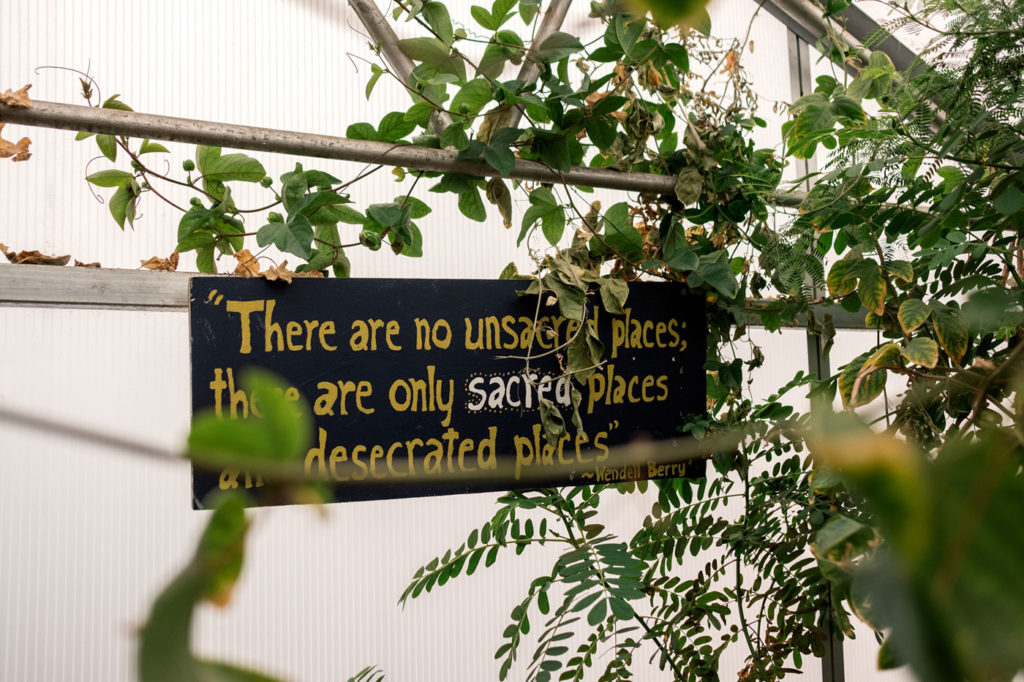
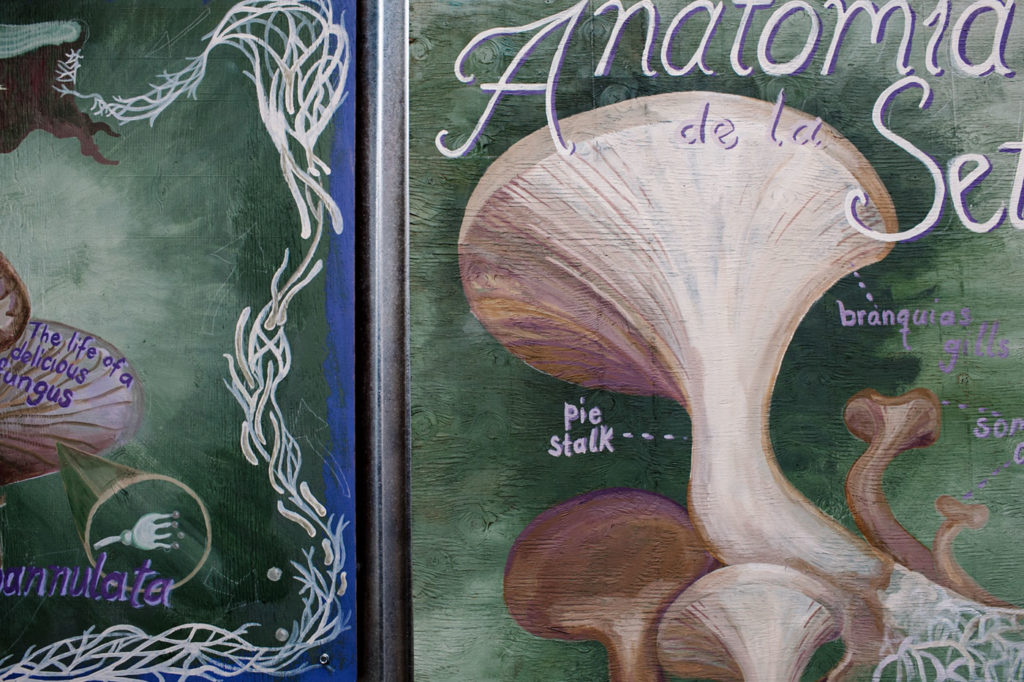
In the beginning, The GrowHaus was an abandoned cut flower processing plant and greenhouse. Reimagined by local real-estate developer Paul Tamburello and activists Ashara Ekundayo, Kendra Sandoval, Adam Brock and Coby Gould, it was reopened in 2009 as an indoor farm and education center to help combat the zip code’s noteworthy food insecurity. Step by step, the organization developed hydroponic and aquaponic growing systems, a food boxes program to deliver fresh ingredients to neighbors’ doorsteps, and a small on-site market. Yet even as this wealth of resources evolved, The GrowHaus team faced a significant hurdle to success: their staff was not a part of the fabric of the community—and very few of them spoke Spanish.
The saying goes, “If you build it, they will come.” But what happens when a community has a justified skepticism toward outsiders, a history of interactions with do-gooders who never finished what they began? “When I started [at The GrowHaus] five years ago, we didn’t have community trust,” explains Executive Director Kayla Birdsong. “I’ve watched it develop in real time, and a huge part of that has been promoting dialogue with the community and asking them what they need, rather than assuming you already know the answer.”
For example, the opening team at The GrowHaus felt sure that the food boxes program would be the best way to combat the lack of accessibility to healthy food. Yet, unlike urban dwellers who avoid the grocery store by subscribing to meal delivery services, the majority of The GrowHaus’ neighbors didn’t want the contents of their kitchens dictated to them. Instead, they wanted to shop for their food in person.
Birdsong notes: “We’ve learned that while we are providing resources to the community, the community is also a valuable resource for us. All the decisions we make are informed by the neighborhood. For example, we started our onsite market because community members asked for a retail space where they could select their own produce. It started with just a basket of apples and lettuce we grew on-site, but with their direct feedback, we expanded our offerings to include meat, dairy, yogurt, grains and other items that are culturally important to our largely Hispanic community. We also developed a sliding scale pricing model to make shopping at the market more affordable for local residents.”
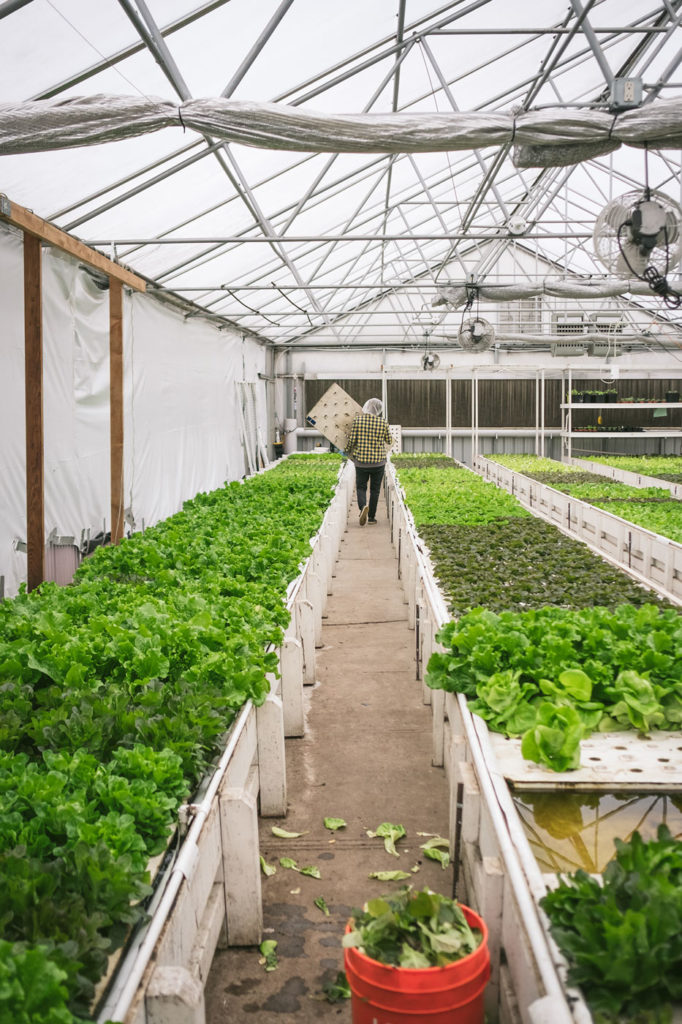
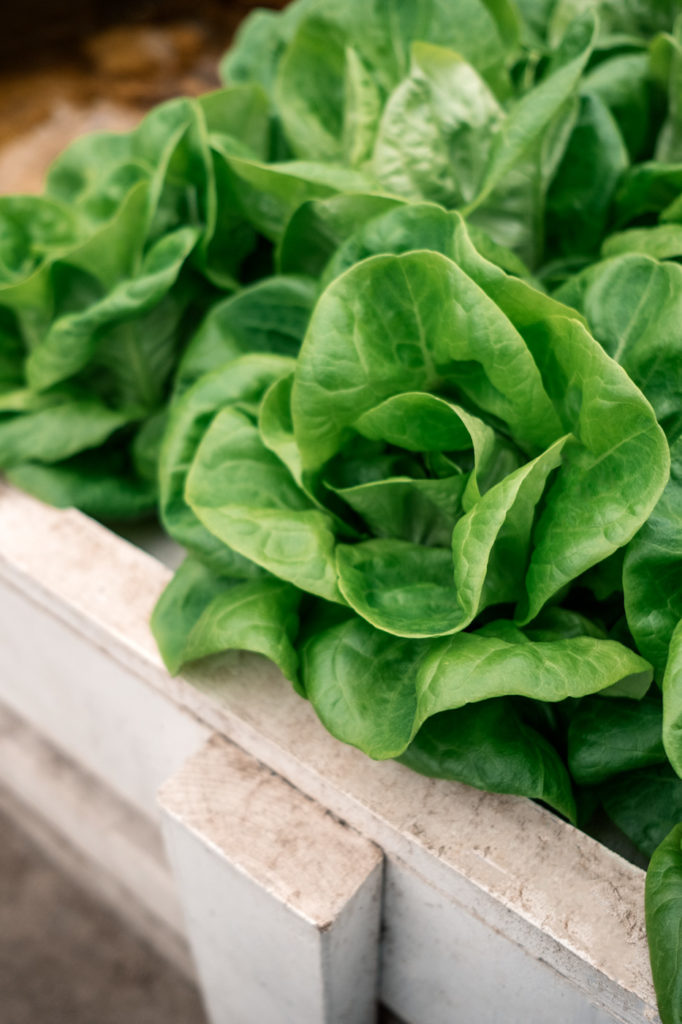
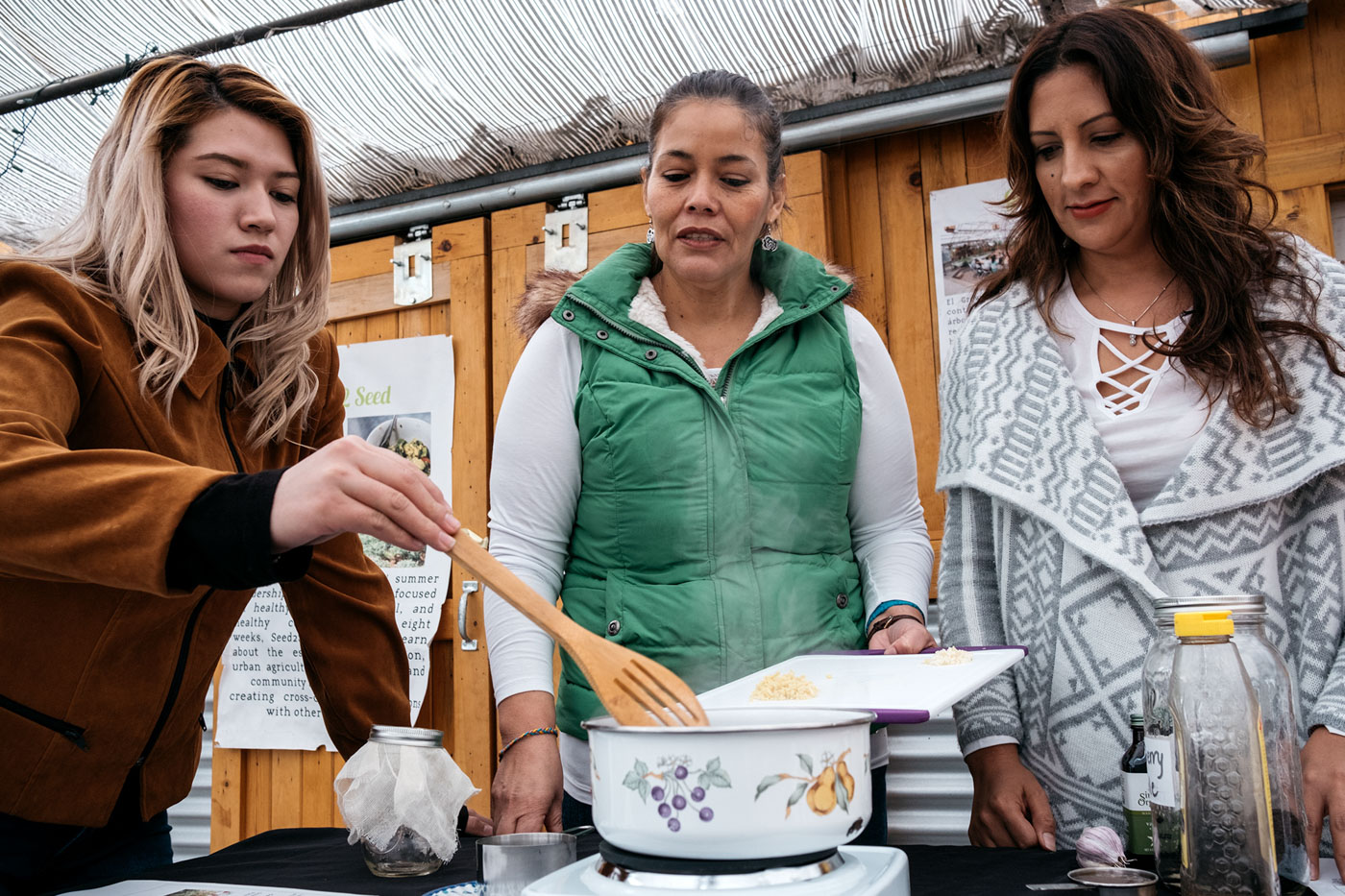
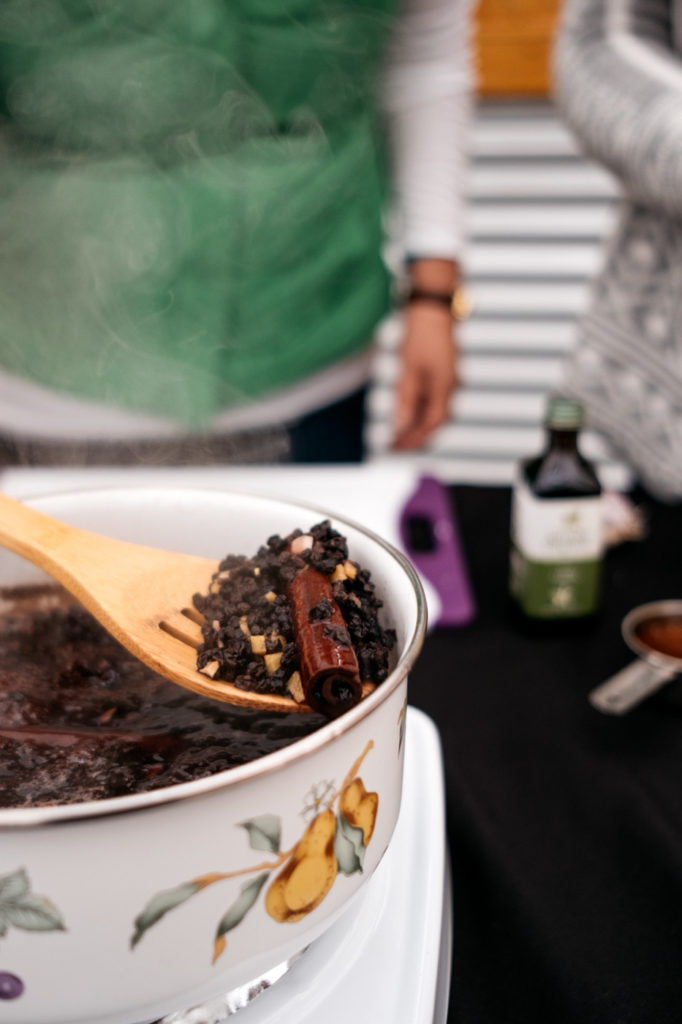
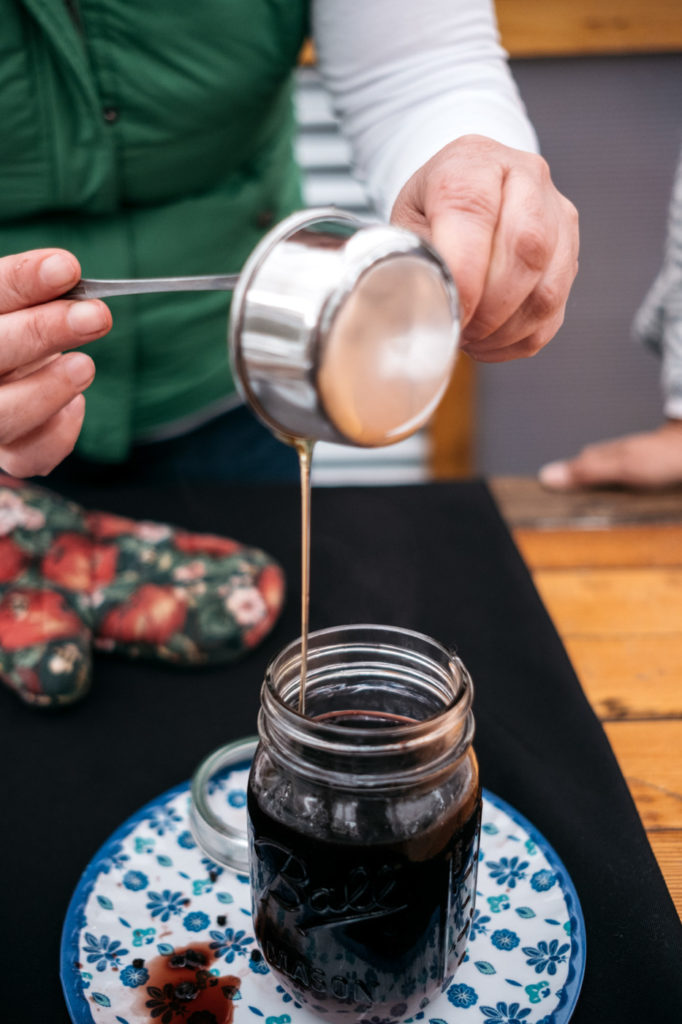
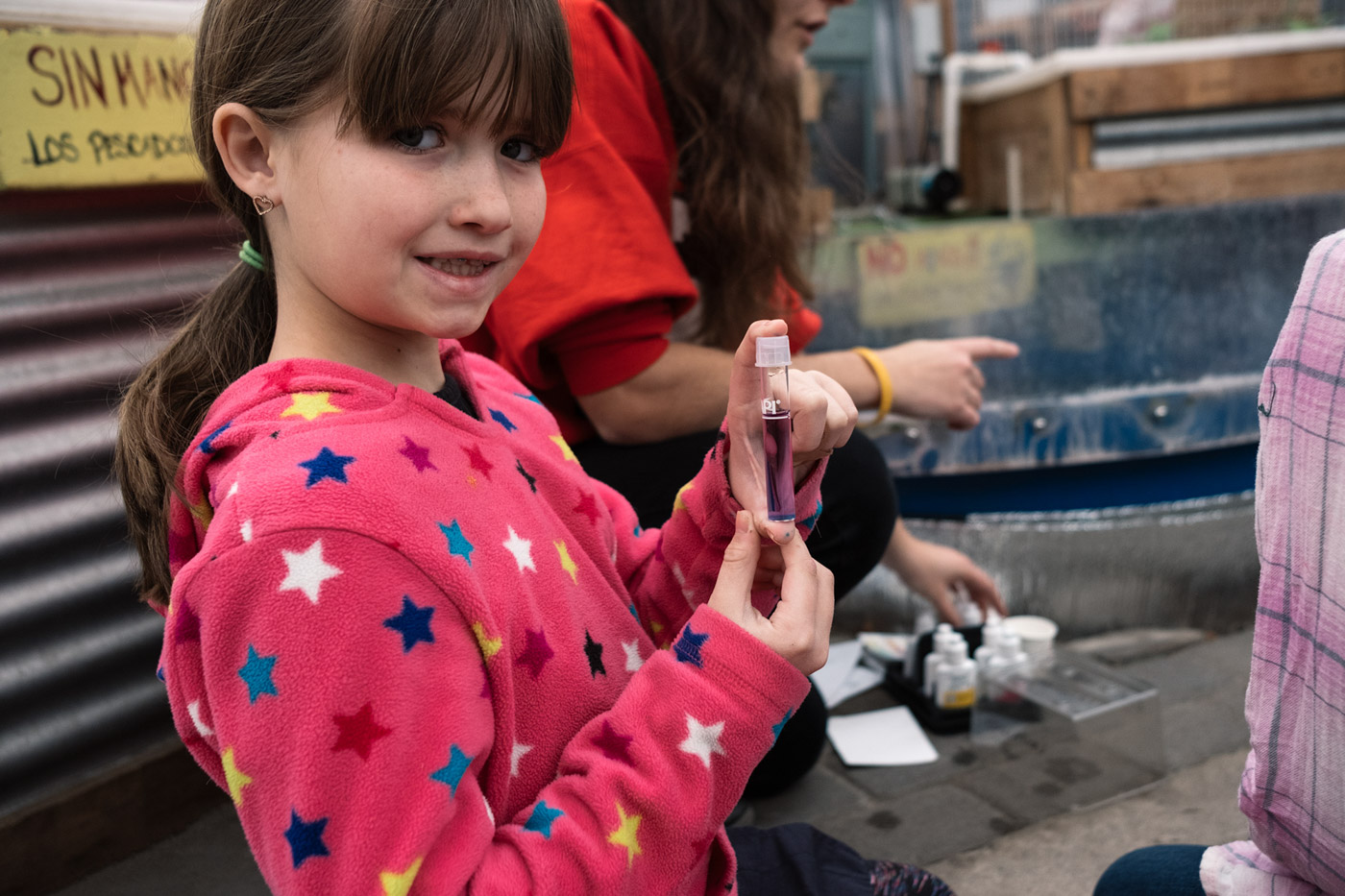
When it comes to educating residents about healthy cooking, the hurdles are even greater. Alicia Perez—an Elyria-Swansea native who now works for The GrowHaus—notes learning about nutrition is rarely a top priority. “The reason some people don’t attend our [onsite] programs is many residents already spend their spare time on ESL or computer classes. Especially for families that are already commuting long distances for work, have children, or do not own a car, it can be a challenge to take advantage of our classes.”
To combat this particular issue, The GrowHaus launched the Promotora Program, which trains five respected women from the community to provide valuable education in residents’ homes. From healthful shopping on a budget to natural ways to combat sickness throughout the winter season, these informal visits to families provide essential life skills to some of the most disenfranchised members of the community.
“We have to meet people where they are—both physically and in their learning journey,” says Birdsong. “That in-person, in-home connection is also a reflection of the neighborhood values. Rather than simply looking at disadvantaged communities as fraught with problems, Birdsong suggests flipping the script and focusing on the assets they have in abundance: “The Elyria Swansea neighborhood has a very strong social culture. It’s the type of community where you actually know your neighbors and people help each other out all the time. That’s very unique in America, and that connectivity is what makes the neighborhood so strong.”
Today, after nearly ten years of progress, the demographics of The GrowHaus’ in-house staff also reflect the wisdom of the local community. “The GrowHaus is a place where leaders—unorthodox leaders—are created, and that’s really important to us,” Birdsong explains. “When I started, there were six staff members, one of whom was from the neighborhood. Now we are a team of thirty. Six of us live in neighborhood, eleven are minorities, fourteen are bilingual—and twenty-one are women.”
That final statistic is particularly resonant, as it reflects not only the food culture of the neighborhood—but also the historic arc of most culinary cultures. Women have long been the caretakers of families, the providers of nourishment. At The GrowHaus, they are also the future. Among all the anecdotes shared by Birdsong, one in particular demonstrated how the organization has integrated with the community:
“There are a few girls from the mobile home park near our property who often spend time at The GrowHaus. Over the summer, they played almost every afternoon in our outdoor space, but they would also bring their own brooms to sweep the sidewalk of our learning garden. When you see kids taking care of a space, it means that they feel safe and supported. But it also means they feel a sense of ownership—that The GrowHaus is truly theirs.”
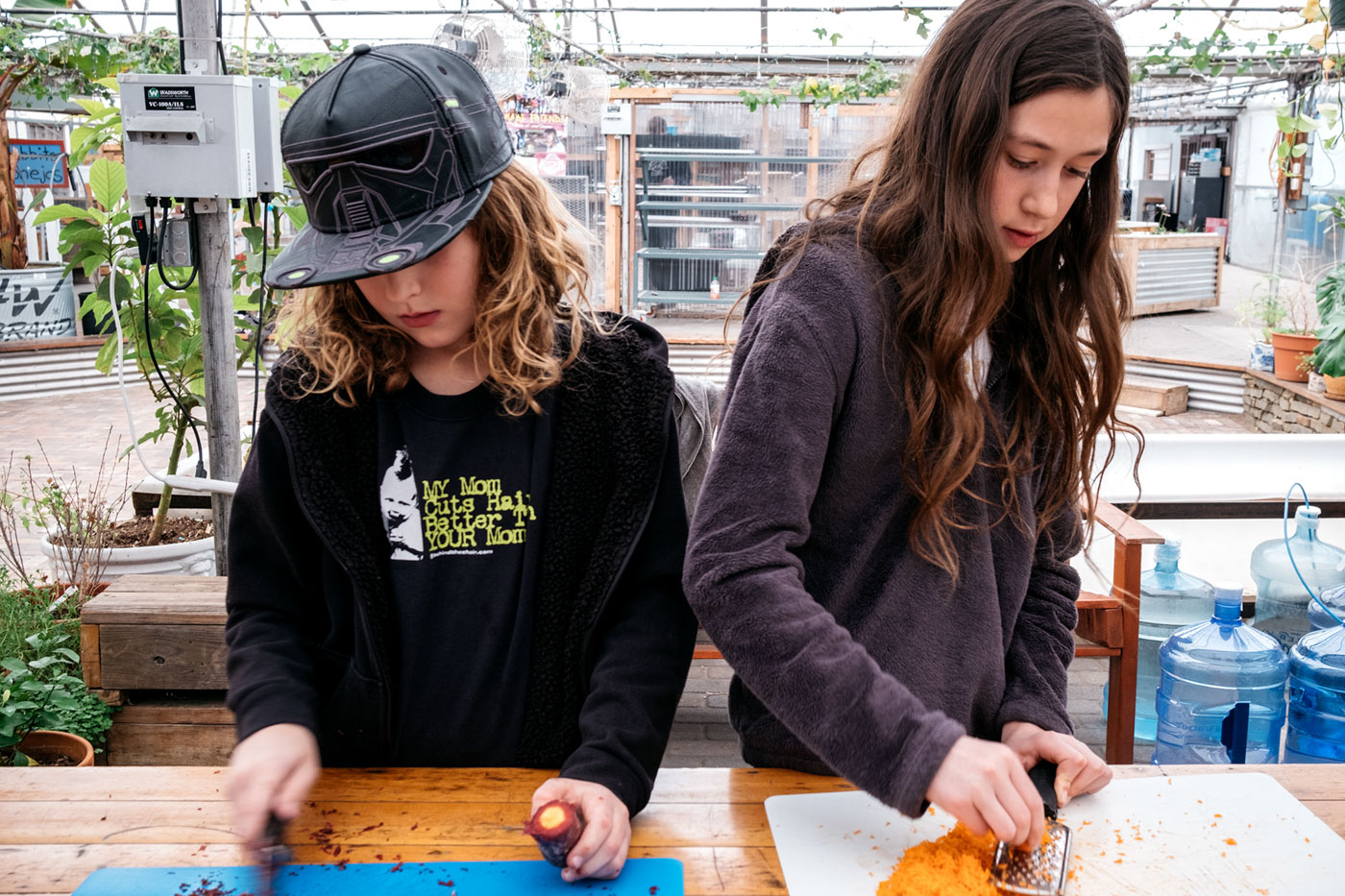
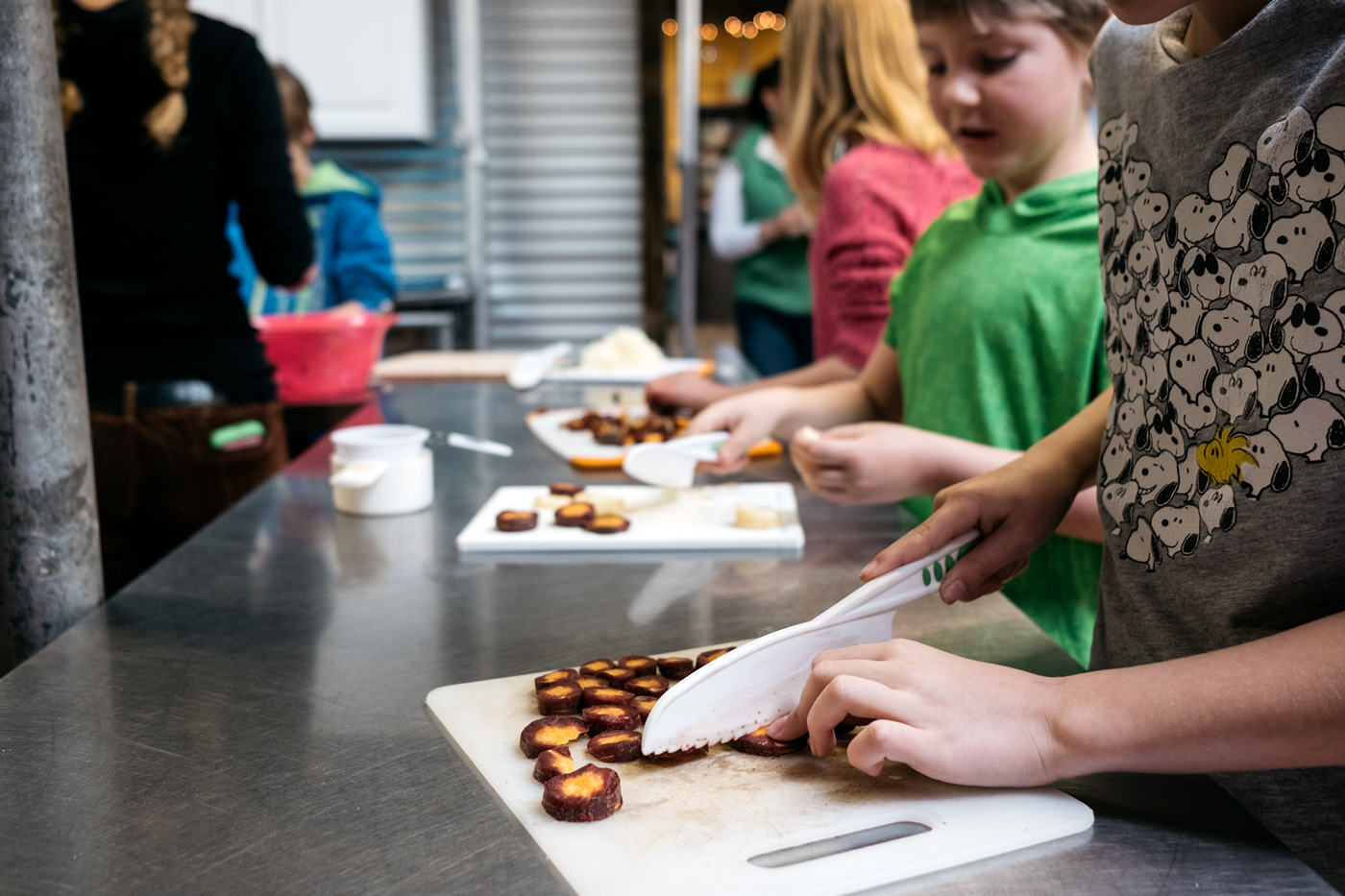
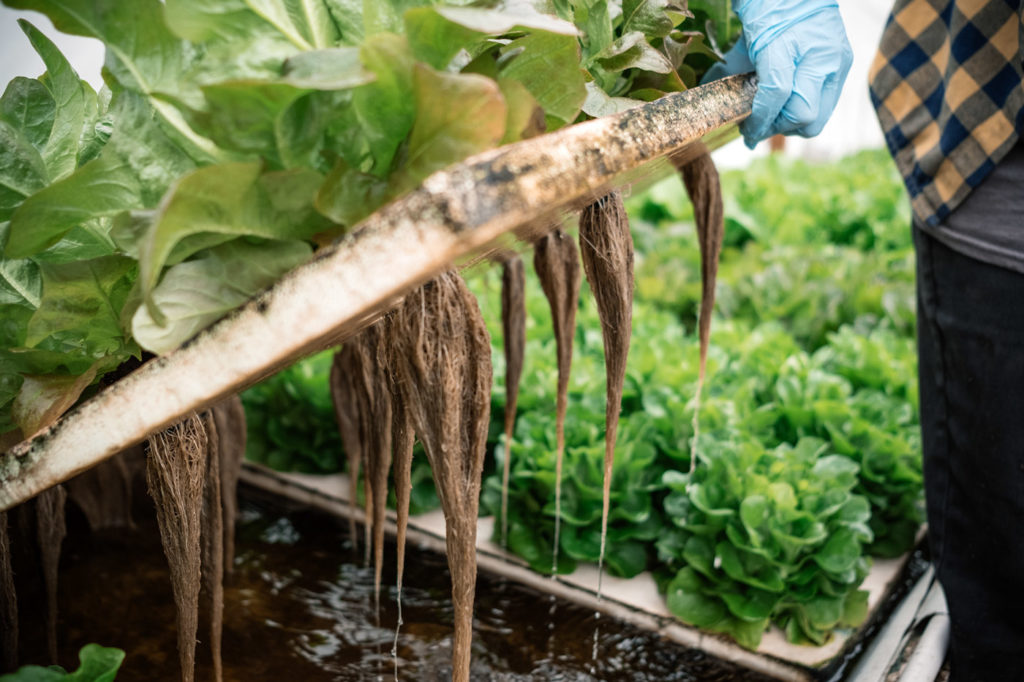
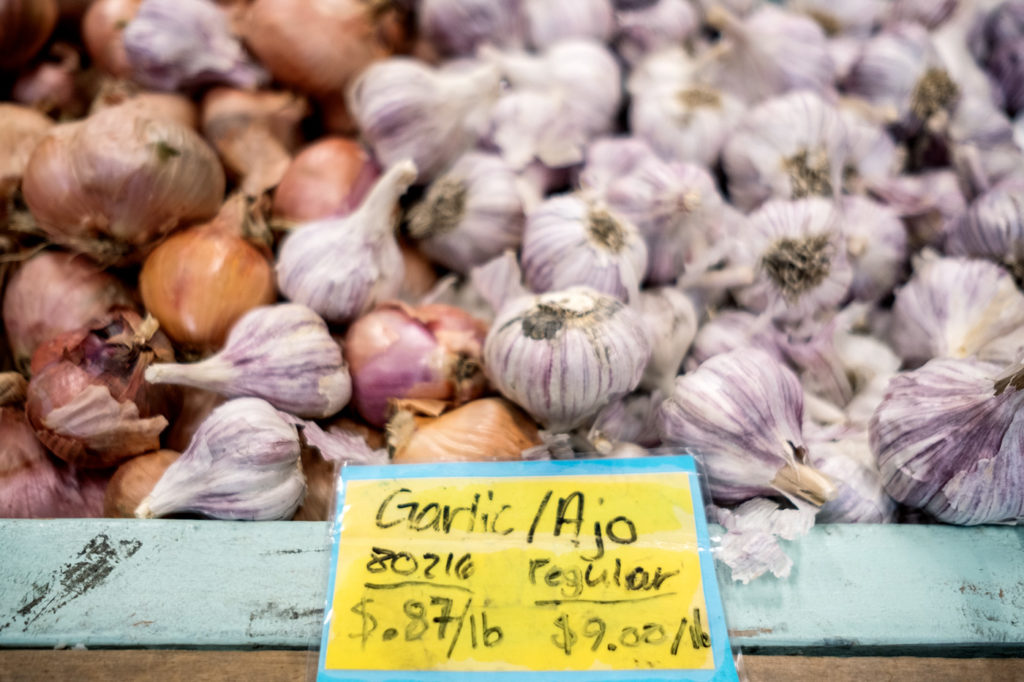
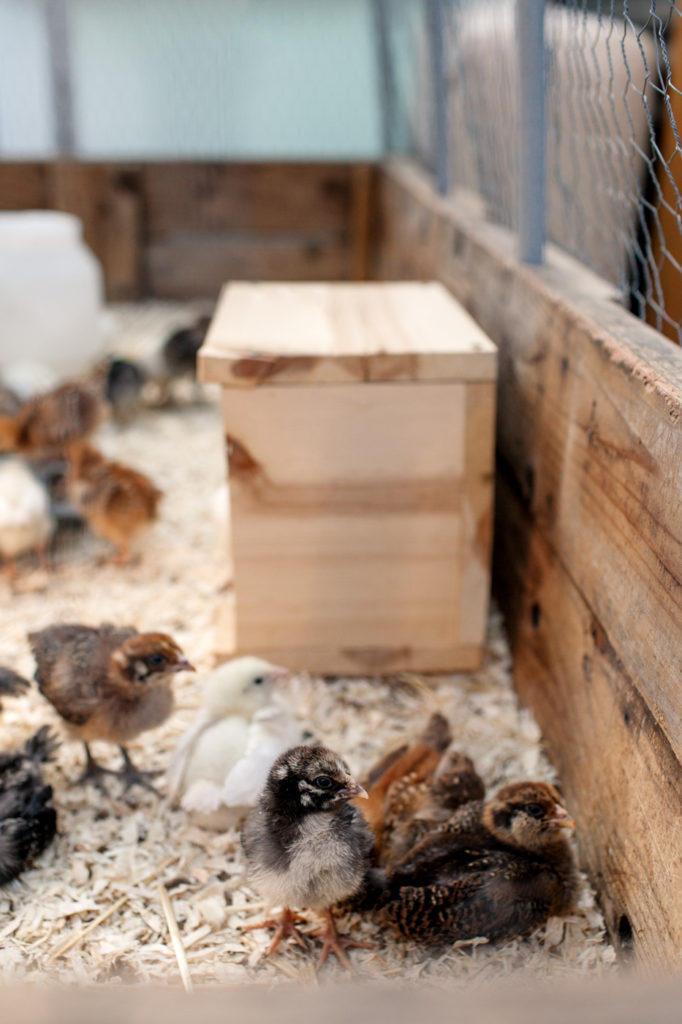
Among The GrowHaus’ many objectives, none is more important than this sense of community ownership. The organization’s stated mission is to be a model for “a world where all communities have the means to nourish themselves”—not a world where disadvantaged communities survive because of social services. Reflecting on The GrowHaus’ future, Director of Development Nathan Mackenzie explains, “If we were simply giving food away for free, that implies it has no value. When we bring people together to learn how to prepare these ingredients or grow food safely in their backyard, we’re not just improving food access; we’re building a sustainable community that endures.”





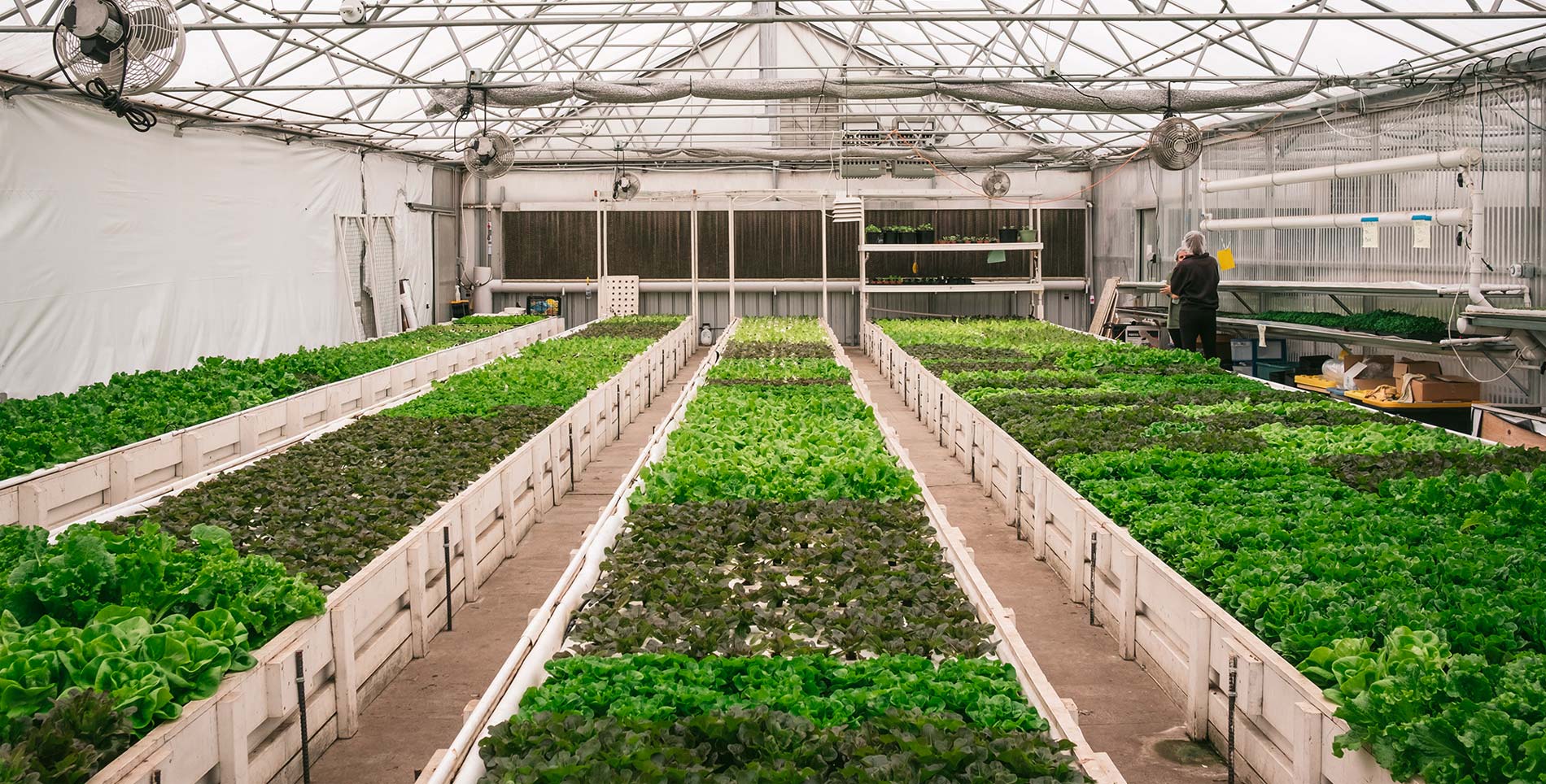

Our comments section is for members only.
Join today to gain exclusive access.